
Starved for staff, firms consider ex-offenders
Develop Indy, the economic development arm of Indy Chamber, is connecting businesses with PACE, a not-for-profit that helps people coming out of the criminal justice system re-enter the community.

Develop Indy, the economic development arm of Indy Chamber, is connecting businesses with PACE, a not-for-profit that helps people coming out of the criminal justice system re-enter the community.
The Central Indiana Community Foundation’s new five-year plan focuses on making Indianapolis a more inclusive city, a goal it hopes to achieve partly by training 5,000 community leaders and residents about institutional racism.
CHIP Executive Director Chelsea Haring-Cozzi, Horizon House Planning Manager Melissa Burgess and IBJ reporter Hayleigh Colombo join host Mason King for a discussion about the problem of deaths among the homeless population in Indianapolis.
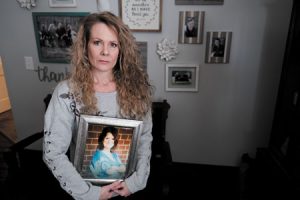
At least 70 people died in Indianapolis last year who previously experienced homelessness, the highest number ever recorded by the Coalition for Homelessness Intervention and Prevention.
White adults in Indianapolis on average outearn black adults whether both groups were born to poor, middle class or wealthy parents.
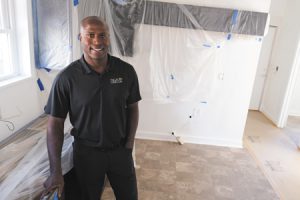
Commonwealth Indiana aims to create both economic and social returns for investors.
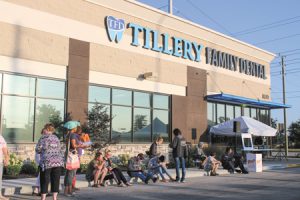
In Indianapolis’ 10 poorest census tracts, 60 percent of residents had not visited a dentist within 12 months, according to an IBJ analysis of CDC and Census Bureau research. But in the 10 tracts with the lowest poverty rates, just 25 percent hadn’t.
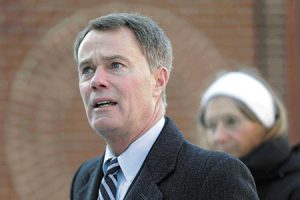
The mayor said his administration has been “very intentional and purposeful” in trying to address the fact that more than 20 percent of Indianapolis residents—and a third of Indianapolis children—live in poverty.

The foundation is undergoing a transformation aimed at narrowing the growing gulf between the community’s affluent and poor.

The tension between a desire for investment and an inherent distrust of it is occurring across disadvantaged Indianapolis neighborhoods.
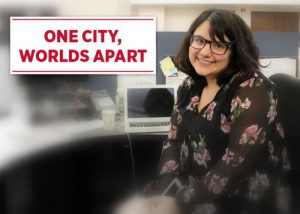
Host Mason King interviews IBJ reporter Hayleigh Colombo about her series “One City, Worlds Apart,” which looks at income inequality and poverty in the city and why everyone should be concerned.
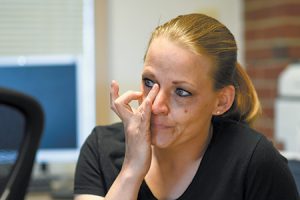
For many Indianapolis residents, the problem isn't finding work. It's landing employment that pays enough to lift them from poverty and provides a financial cushion to absorb daily life's inevitable setbacks.
Census data shows that 35 of the 36 ZIP codes in Indianapolis had higher poverty rates in 2016 than they did 16 years earlier.

Median household incomes have dropped in a full third of Indianapolis ZIP codes since 2000. Inequality is growing across the city.